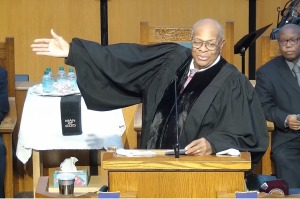Pastors and Time
Leadership gurus will tell you that a primary skill of an effective leader is the ability to manage time for maximum productivity. Out of curiosity, our research team asked over 200 pastors to provide us an hour-by-hour calendar of a typical 168-hour week for them. Keep in mind that 168 hours represent all the hours in a week, so their reports included such mundane items as sleeping and eating.
Impressed with the Effective Leaders
Our study included 101 pastors that we called effective leaders because their churches ranked in the top five percent in conversion growth in American churches. A comparison group of pastors of similar number were leading churches that did not have significant conversion growth.
Our researchers were impressed with the time management skills of the effective pastors. Perhaps the best way to show their skills is to compare their use of time with that of the leaders of the comparison churches.
Differences in Priorities
Without comment, let us highlight some of the most significant differences between the pastors of the effective churches versus the pastors of the comparison churches. You may be surprised at some of the findings.
* Pastors of effective churches sleep slightly over six hours per day. Pastors of comparison churches sleep almost eight hours per day.
* Pastors of effective churches spend twenty-two hours in sermon preparation each week versus four hours for pastors of comparison churches.
* The effective church leaders spent ten hours each week in pastoral care compared to thirty-three hours for the comparison group pastors. Pastoral care included counseling, hospital visits, weddings, and funerals.
* Effective church leaders average five hours per week in sharing the gospel with others. Most of the comparison church pastors entered "0" for their weekly time in personal evangelism.
* Comparison church leaders spend eight hours a week – more than an hour each day – performing custodial duties at the church. The typical custodial duties included opening and closing the facilities, turning on and off the lights, and general cleaning of the building.
* Leaders of effective churches average 22 hours a week in family activities. The comparison church leaders weren't too far behind with 18 hours of family time each week.
Priorities and Balance
The time allocation of effective leaders seems to complement the way they describe their own leadership styles. In order to accomplish what they considered priority functions, they had to sacrifice in other areas. The leaders of effective churches spent over 40 hours per week with their families and in sermon preparation time. In order to fulfill these priorities, they obviously had to let some things go.
Thus the effective leaders cannot do many of the responsibilities often expected of them as pastors. They cannot make all the hospital visits. They cannot counsel everyone. And they cannot perform all of the custodial duties that may be expected of them. But as leaders they can see that those things get done.
Leaders of effective churches thus make certain that their family and work life is balanced. And they make certain they have time to be missional and all about the Great Commission.
They also give priority in time to prayer and to preparation in God's Word for the sermons to follow.
They almost sound like they are following the pattern of the early church leaders: "But we will devote ourselves to prayer and to the preaching ministry" (Acts 6:4, HCSB).
Biblical. Missional. Evangelistic. And powerful preaching.
How are you spending your time?





























